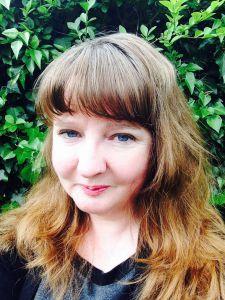 I’ve said this many times, but one of the greatest things about taking up writing and running this blog has undoubtedly been getting to know lots of fantastic people I would never otherwise have met. Some I met first in person at launches or writing events, others I encountered first online and subsequently in real life; some I have never come face to face with and probably never will. Just yesterday I was hugely touched by the response from people in each of these categories to something personal I mentioned on Twitter. Earlier this week I heard the value of real life v. virtual friends being debated and as always – and particularly with the world in such a horrendous mess – fixating on how and where we find meaningful human connection strikes me as a bit strange and irrelevant. What matters is that we do – it can happen in all kinds of ways.
I’ve said this many times, but one of the greatest things about taking up writing and running this blog has undoubtedly been getting to know lots of fantastic people I would never otherwise have met. Some I met first in person at launches or writing events, others I encountered first online and subsequently in real life; some I have never come face to face with and probably never will. Just yesterday I was hugely touched by the response from people in each of these categories to something personal I mentioned on Twitter. Earlier this week I heard the value of real life v. virtual friends being debated and as always – and particularly with the world in such a horrendous mess – fixating on how and where we find meaningful human connection strikes me as a bit strange and irrelevant. What matters is that we do – it can happen in all kinds of ways.
It’s fair to say that I met today’s guest Rose McGinty in unusual circumstances. Our mutual friend Amanda Saint put us in touch on Facebook when Rose and I were going to be on holiday in Sorrento at the same time last Easter. We also share a love of Elena Ferrante’s writing, which is what drew me to the area. We chatted a bit before and during our time in Italy, but our paths didn’t look set to cross until the evening Rose wrote that a large boar had appeared on a first floor balcony opposite her hotel. This I had to see, and that is how the two of us ended up drinking Prosecco and swapping news of our debut novels. Soon after, Rose was amongst the guests at the launch of Paris Mon Amour, about half of whom I originally met online. I’m delighted to welcome her to the Literary Sofa today with a Writers on Location piece with a difference; one which, appropriately, focusses less on geography than on friendship.
‘It must have been really hard for you, being a woman,’ is usually the first thing that most people say to me when they hear I spent a year living in an Arabic culture in the desert. That, and, ‘how did you cope with the heat?’ To the latter I always say I have never spent so much time shivering, because, despite the days when the mercury hit in excess of fifty degrees, I spent most of the year in sub-zero temperatures due to the artic air-con everywhere. My answer to the question about finding it difficult as a woman in an Arabic country is also the polar opposite to what people might expect. If anything, I found it easier in many ways on a day to day basis, but nothing is as it seems in the desert.
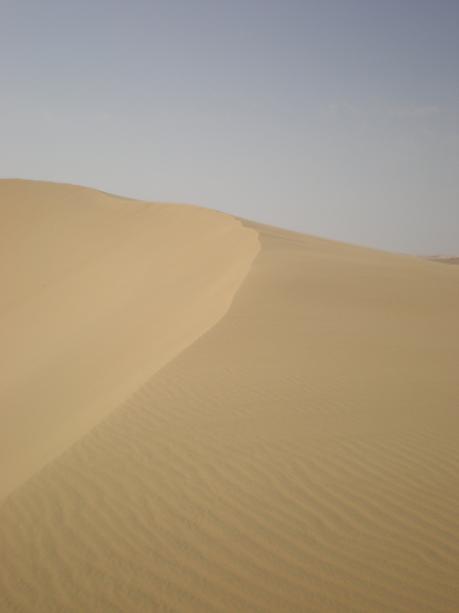
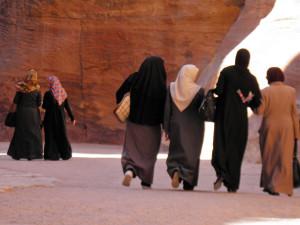
Each day this was brought home to me because my office was nested in the middle of a corridor of offices occupied by young, local women, who worked in the communications department at the health authority where I was working. These women were spectacular. They arrived in a storm of musky perfumes, teetering on six inch heels and swinging designer tote bags. Their abayas were a galaxy of rhinestones. Their eyes, ‘tiger eyes’, heavy with false lashes and kohl. As soon as they arrived the peace of the white marble palace was shattered as they squawked and squealed with each other all morning. For all their demure, elegant appearance, I was certain there were some tall tales being shared.
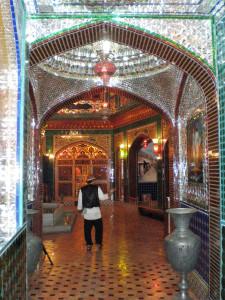
The expat women scoffed at my desire to make friends with the local women and warned me it would never happen. Westerners were never invited to the homes of the locals. If you did manage a conversation with a local woman it would only be about her children or cake. Arabs never talked about what was in their hearts. They spoke only in riddles and poetry. They were unknowable.
It was my aloneness that caught the eyes of the local women. They were curious. One morning a delegation of them came into my office and placed a lump of charcoal on my desk. Next they took a lighter to it and a cloud of perfume engulfed the office. This was oud. They wafted the smoke through my hair and told me I was now a ‘Sister’ and one of them, so I should come to breakfast. Every morning a flotilla of platters of pastries, falafel, flatbreads, olives and dainty macaroons bobbed past my office as the women would gather to feast.
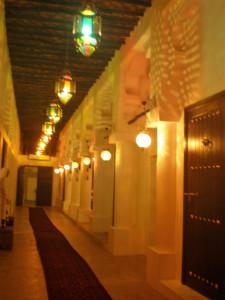
At the breakfast feasts the women fed me morsels of their stories and friendship, and before long I was visiting their homes, eating dinner sat on the floor, shopping together in the souk, celebrating festivals, attending weddings, visiting newborns in hospital and was drawn into every intimate detail in the tents in their gardens, where we fully shared our secrets and stories.
These friendships were as intense and precious as the oud, and without them I would not have survived the desert and the difficult times I experienced there, or found the inspiration for my story, Electric Souk. The woman without a shadow, a story, on the escalator was me, I understood in time, without my female friendships. This was why the dark figure startled and disturbed me. The desert showed that we cannot live without friendships and stories.
Thanks to Rose for this beautiful, uplifting piece, and to all our friends, however we met!
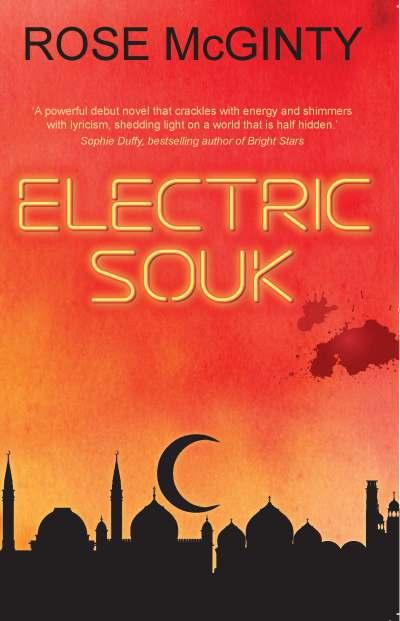
My personal experience of the Middle East is limited to fleeting glimpses of the Dubai skyline whilst changing planes, but it no longer feels that way after reading Electric Souk. Despite reminding me in some ways of Joseph O’Neill’s The Dog (set in Dubai), this is an unusual debut which defies classification and has the potential to appeal to a wider audience than its allotted ‘thriller’ genre might suggest. It has elements of satire, rom-com and old-fashioned love story; with its unique blend of exuberance and menace, Electric Souk is a journey and an adventure. The sense of place – although the precise location is never specified – is extraordinarily vivid, teeming with sensory detail. But for me its true strength lies in the exploration of cultural collisions through eyes of an expat narrator, a perspective I always find interesting. Aisling’s insights and experiences – often humorous, sometimes very poignant – left me with the suspicion that I’d learned more about life in the region than if I’d actually left the terminal building and the ending, which in so many cases I find hard to recall even a week or two later, is one I won’t forget.
*POSTSCRIPT*
Next week, on a coincidentally related theme, I look forward to welcoming Tammy Cohen, AKA Rachel Rhys, who will be sharing her experience of writing a community of strangers in her novel A Dangerous Crossing.
Advertisements
